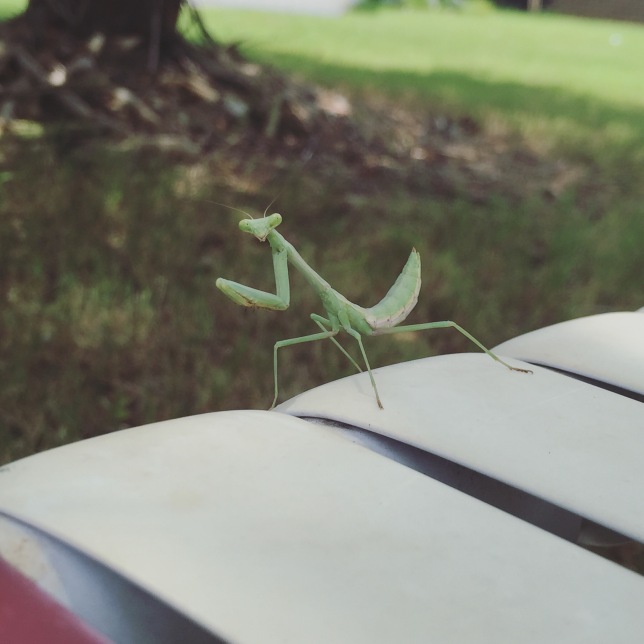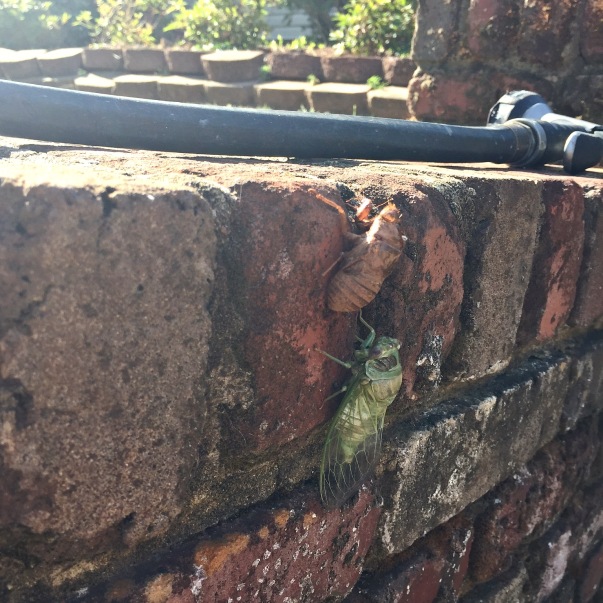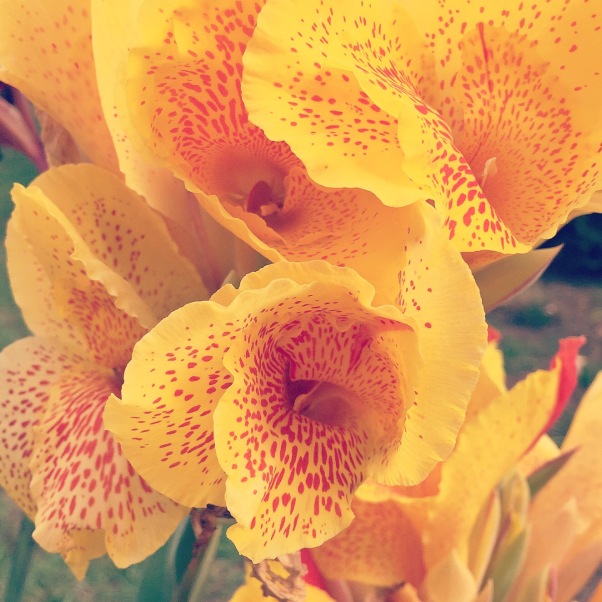Every species on Earth–past or present, from the single-celled microbe to the biggest dinosaurs, daisies, trees, people–must accomplish the same five things in order to persist: grow, reproduce, rebuild, store resources, and defend itself. Hope Jahren, Lab Girl
I can’t remember many details of the last half of 2017. If I had to pick a color for that time it would be blue—a blue of anguish, undoubtedly. A bottomless blue you can fall or rise into, a losing blue. But not black, unless you count the blackness of anger, which I suppose I must. Still, mostly blue.
Blue has light in it. Blue is primary. It can hold things: grief, light, hope, flight, pain, sleep, dawn, heat, cold.
Blue can make things. With yellow it makes green—azaleas, camellias, pine needles, oak leaves, gardenias, dragonfly wings. With red it makes purple—the tiny bruise a week after a yellow jacket sting, the sun setting behind a bank of storm clouds, a single pansy blossom, potted by my eight year old for Mother’s day, that blooms again and again and again, blooming its life away because that’s what it does. As soon as I pluck the withering bloom it immediately begins to make another.
Labor Day served as a reset—blue and yellow—a pause between the routines of summer and autumn. A vacation to Gulf Shores was, if not the exclamation point, then at least an ellipses’ long pause, letting summer last a few weeks longer. We did it. We made it through this particular year.
I’m not sure what it is we’ve done exactly, what I’ve done. Worked. A lot. Months of library hours; at least 20 lawns mowed, weed eater eaten up; boys to school, boys picked up; weekend afternoons at the pool; nearly comatose evenings after long walks with Chunk, nights when I should put myself to bed but end up watching dark Swedish crime dramas while I nurse a martini.
Something’s been happening in these days that made months into a year. I still don’t have words of my own to put to it, so I will borrow words from others. The writer-scientist Hope Jahren brilliantly conveys botany’s mystery, giving it a kind of sense that translates:
There are a hundred species or so known as “resurrection plants.” These species are unrelated, but within each of them the same process has somehow developed. Resurrection plants have leaves that can be desiccated to papery brown shreds, feign death for years, and then rehydrate to normal function. It is their unusual biochemistry that allows them to do this, an accidental trait and something that they did not choose. As they wither, their leaves fill with concentrated sucrose, thick sugar left behind during the drying. This syrup stabilizes and preserves the leaves, even when they are drained of their green chlorophyll.
Yes. Perhaps something has been happening. I see through a glass, darkly, but at least I still can see. Because tiny resurrections are possible, have happened, will surprise me again.
Resurrection plants are usually tiny, no bigger than your fist. They are ugly and small and useless and special. When it rains, their leaves puff up but do not become green for forty-eight hours because it takes time for photosynthesis to start up. During those strange days of its reawakening the plant lives off of pure concentrated sugar, and intense sustained infusion of sweetness, a year’s worth of sucrose coursing through its veins in just one day. This little plant has done the impossible: it has transcended the wilted brown of death.
I may not feel led, but I have hope. Perhaps that’s why Chunk and I take all those walks. We are practicing, keeping our walking legs strong and our joy intact.
























